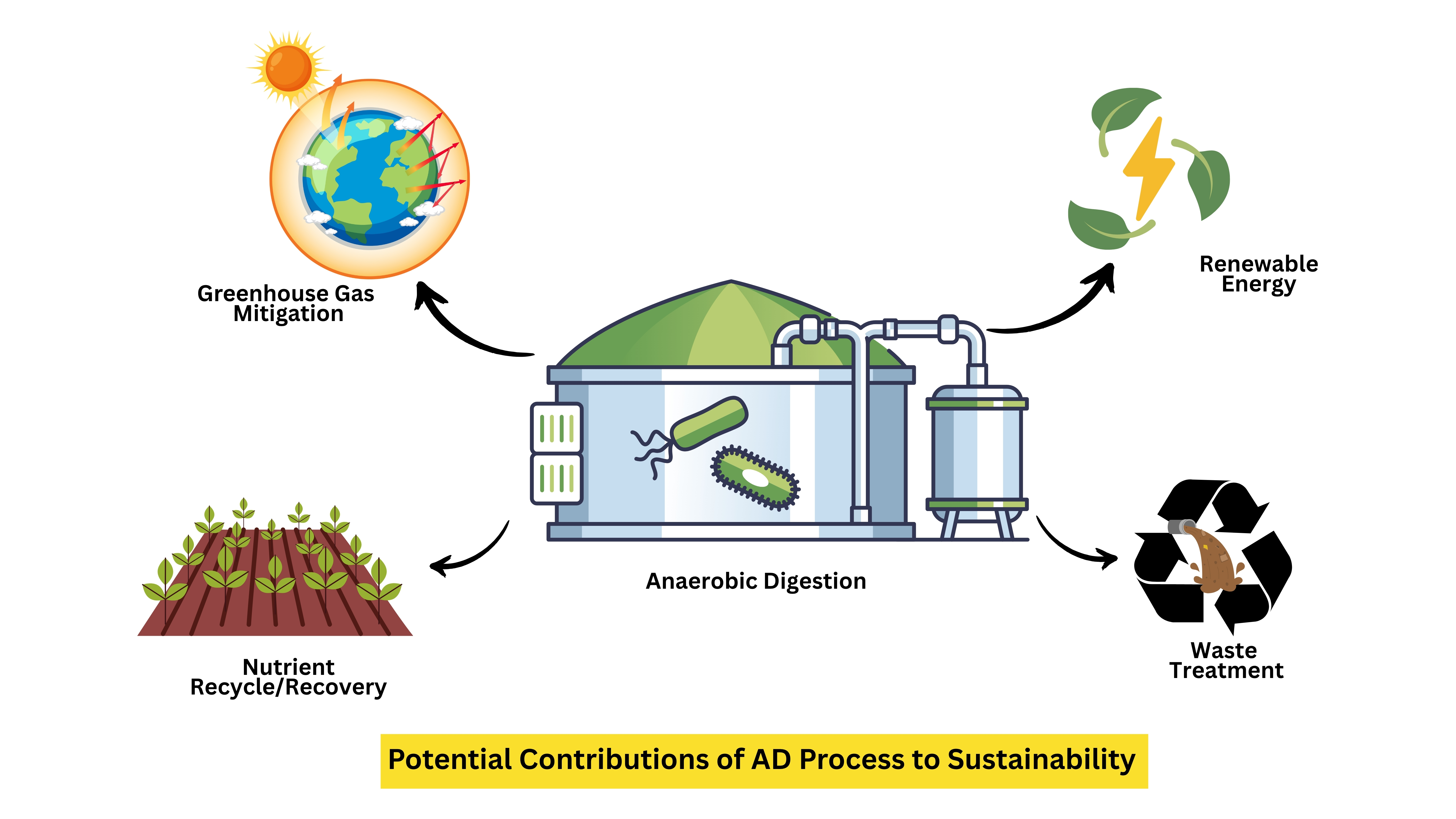Intensification of Anaerobic Digestion of Combined Different Wastes
The young researchers of the BRT are diligently working to increase the visibility of the success and potential of bioenergy sources across the globe. From Indonesia to Vietnam to Ethiopia and beyond, their efforts to highlight the impact and importance of incorporating renewable energy technologies are creating change worldwide.
With this popularisation series, we aim to showcase the impact of our research on renewable energy in strategic countries around the globe.
Enjoy reading the article below by our Ph.D. student, Manvendra Kumar!
Imagine the future when waste from daily life generating in a huge quantity, from food scraps to agricultural residues but maybe it’s not an issue but could be a useful resource. Thanks to a technology known as "anaerobic digestion" (AD), this is not just a future technology but a reality.
Biogas, a renewable energy source mainly composed of methane (CH4) and carbon dioxide (CO2) with other gases in trace amount, and digestate, an organic nutrient-rich fertiliser, are the products of anaerobic digestion. Biogas production is a natural process in which microorganisms break down organic waste without oxygen. Although this procedure is not new, but we need to improve its effectiveness to manage various waste types at once advanced research that could have a big impact on our energy and environmental landscape.
In my PhD, I am working on "Intensification of Anaerobic Digestion of Combined Different Wastes," and it goes deeply into enhancing this important procedure. The methodology is straightforward but innovative: integrate various waste streams, including sewage sludge, food waste, and agricultural residue, into a single, incredibly effective and enhanced biogas production system. Our goal is to optimise biogas production in a timely and economical manner by carefully adjusting the ratios of these combined wastes and increase the microbial community’s concentration to speed up the digestion process.
Our study, carried out by the BioResources and Technology Division (BRT) within the Faculty of Tropical AgriSciences (FTZ) at the Czech University of Life Sciences Prague (CZU), investigates novel approaches. These include cutting-edge pre-treatment techniques that considerably increase the biodegradability of combined waste, like thermal hydrolysis, enzymatic enhancement, and ultrasonic treatment. We are also experimenting with bioaugmentation, which involves adding specific microbial strains that improve methane yield and speed up waste breakdown.
From the first waste preparation and microbial digestion to the last biogas extraction, this integrated approach guarantees that every stage is optimised for maximum efficiency. Our ultimate objective is to increase biogas production quickly, affordably, and sustainably.
Imagine farms using their own green energy, cities powered by their own waste, and a vastly decreased reliance on landfills. We are transforming today's waste into tomorrow's wealth by accelerating anaerobic digestion through a combination of waste management, microbial engineering, and cutting-edge treatment technologies. This is our route to a sustainable future, not just clever science.
For more details on BRT activities, subscribe to our newsletter or follow us on social media for regular updates and highlights!


